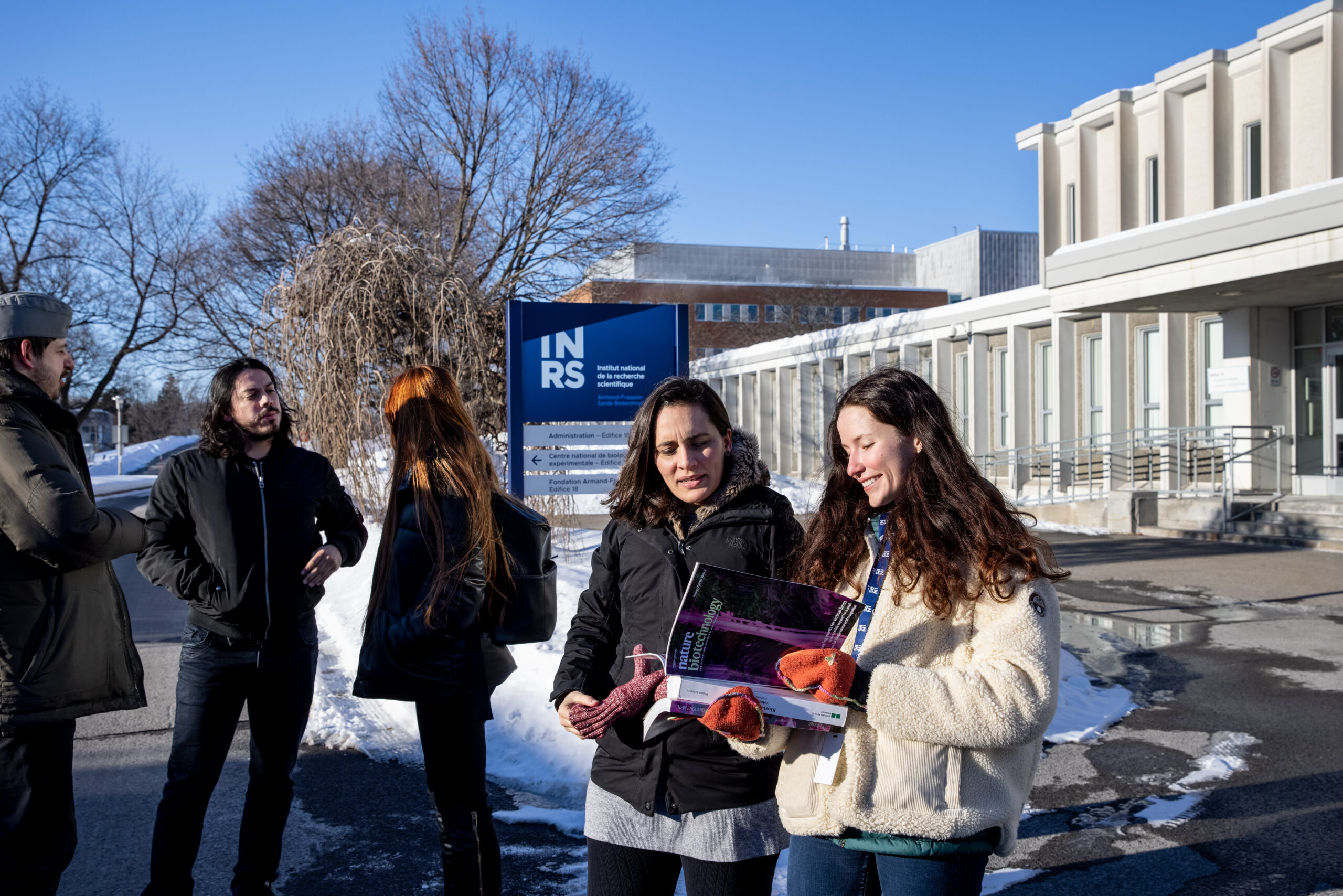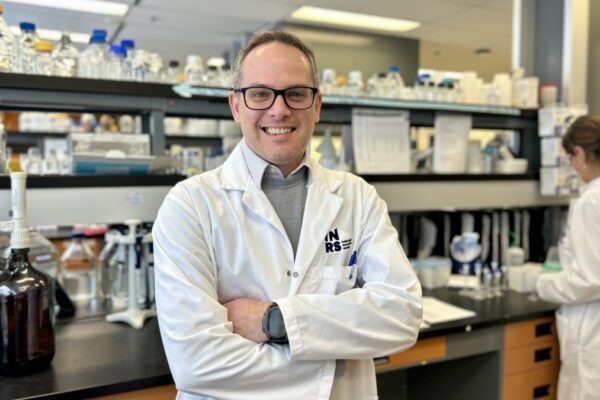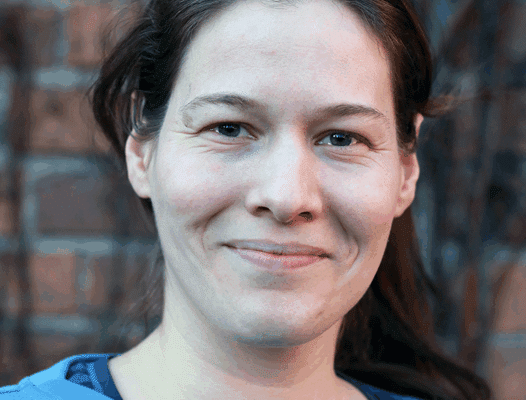- Research
Prestigious Stanford University’s annual ranking highlights INRS scientists’ performance worldwide.

Photo : Josée Lecompte
The list drawn up by Stanford University and scientific publisher and data analyst Elsevier is the talk of the academic world every year. Considered one of the most prestigious rankings in the world, it highlights the productivity of international scientists based on how many times they are cited.
According to the most recent report (data from 2023), 33 professors and 6 emerging researchers (students and graduates) from the Institut national de la recherche scientifique (INRS) are among the world’s most cited scientists, all disciplines combined.
A total of 149 people made the list across the Université du Québec (UQ) network of 10 universities, including INRS. With 39 members on the list, the INRS community accounts for almost a quarter (22%) of the network’s recognized scientists, leading the ranking within UQ.
What does it mean to be cited in academic research?
In research, “being cited” means that the person or scientific paper is mentioned in the work of their peers around the world. Citations show that a scientist’s work has influenced other research, which is not only a sign of recognition in the scientific community, but also an indication of performance and relevance.
Researchers in the spotlight
Professor Shuhui Sun, who specializes in nanomaterials for energy conversion and storage, is the most cited INRS scientist in the world. He is closely followed by his colleagues Jacob Benesty, a professor specializing in multimedia communication systems; Nathan McClintock, a professor specializing in critical geography and urban agriculture; and Federico Rosei, a professor specializing in nanotechnology. Professor Benoît Godin, who passed away in 2021, appears in the ranking as well, a testament to the quality of his unique, internationally renowned work on the history of statistics.
Professor Dongling Ma, an expert in nanomaterials; Professor Monique Lacroix, an expert in food science; Professor Maryse Bouchard, an expert in environmental health; and Professor Maya Saleh, an expert in innate immunity and immunooncology, are also among the most cited INRS scientists in the world.
Productive careers
The ranking also highlights the scientists who have been cited the most over the course of their careers.
Professors Jacob Benesty, Federico Rosei, and Jean-Pol Dodelet (honorary professor) top the list of INRS scientists who have been cited the most over the course of their careers. Professors Lacroix, Ma, and Saleh also feature in the ranking. The double distinction testifies to the phenomenal impact of their work over the years.
The career ranking also includes Professor Sonia Aïssa, an expert in wireless multimedia communications, who has been widely cited throughout her career.
A new generation of high-calibre talent
Several INRS students and graduates also appear on the list, demonstrating the considerable influence of the next generation’s work at the institution and its impact on major contemporary scientific issues at home and abroad.
Congratulations to postdoctoral researcher Amjad Iqbal; Sarosh Ahmad, telecommunications Ph.D. student on Professor Tayeb A. Denidni’s team; and Tanos Franca, custom Ph.D. student in computer-aided drug design under the supervision of Professors Steven Laplante and Salim Timo Islam. We would also like to note the ranking of visiting professor Shiv Shankar, currently based at the University of Dublin, who was a postdoctoral fellow from 2019 to 2023 and a research associate under Professor Lacroix.
Furthermore, we are very proud to see that graduates Gurpreet S. Dhillon (Ph.D. in Water Sciences, 2013) and Michel Lefèvre (Ph.D. in Energy and Materials Science, 2003) are distinguishing themselves in their fields and contributing to the reputation of INRS.
Congratulations to all!
Ranking (according to overall rank without self-citation) for 2023 publications
- Shuhui Sun, specialized professor in Nanomaterials for Energy Conversion and Storage
- Jacob Benesty, specialized professor in Multimedia communication systems
- Benoît Godin, professor specializing in the intellectual and conceptual history of science, technology and innovation (deceased 2021)
- Shiv Shankar, guest professor and postdoctoral fellow from 2019 to 2023 under the supervision of Professor Monique Lacroix
- Nathan McClintock, specialized professor in Critical geography
- Federico Rosei, specialized professor in Nanotechnology
- Dongling Ma, specialized professor in Nanomaterials
- Amjad Iqbal, postdoctoral researcher under the supervision of Professor Tayeb A. Denidni
- Monique Lacroix, specialized professor in Sciences, applied to food
- Patrick Drogui, specialized professor in Electrotechnologies and Water treatment
- Fiorenzo Vetrone, specialized professor in Nanoparticles doped with rare earths
- Taha B.M.J. Ouarda, specialized professor in Statistical hydrometeorology
- Roberto Morandotti, specialized professor in Nonlinear optics
- Martin Maier, specialized professor in 6G, Tactile Internet, Extended Reality, and DAO
- Eric Déziel, specialized professor in Microbiology
- Étienne Yergeau, specialized professor in Microbial ecology
- Tayeb A. Denidni, specialized professor in Antennas and radio frequency systems
- Thomas Sanderson, specialized professor in Toxicology
- Jean-Pol Dodelet, specialized professor in Fuel cells
- Gurpreet S. Dhillon, PhD. in Water Sciences (2013) under the supervision of Prof. Satinder K. Brar
- Bernard Bobée, emeritus Professor specialized in Statistical hydrology
- Tiago Falk, specialized professor in Wireless Multimedia Communications
- José Azaña, specialized professor in Optical fiber telecommunications
- André Tessier, associate Professor at INRS in Biogeochemistry and trace metals in aquatic ecosystems
- Maryse Bouchard, specialized professor in Environmental health
- Charles Ramassamy, specialized professor in Toxins and Antioxidants and Alzheimer’s Disease
- Maya Saleh, specialized professor in Innate Immune and Immunooncology
- Michel Lefèvre, PhD in energy and materials science (2003) under the supervision of Professor Jean-Pol Dodelet
- Jean François Blais, specialized professor in Water treatment and Environmental decontamination
- Marc A. Gauthier, specialized professor in Dynamic chemistry
- Douglas O’Shaughnessy, specialized professor in Speech processing
- Jinyang Liang, specialized professor in Information optics
- François Légaré, specialized professor in Material and laser imaging
- Zakaria Abou El Houda, specialized professor in Cybersecurity
- Tanos C.C. Franca, PhD in computer-aided drug design under the supervision of Professors Steven R. Laplante and Salim Timo Islam
- Steven R. Laplante, specialized professor in Medicinal chemistry
- Jean Claude Kieffer, retired professor specializing in ultrafast laser technology
- Luca Razzari, specialized professor in Nanophotonics
- Sarosh Ahmad, PhD in telecommunications under the supervision of Professor Tayeb A. Denidni



